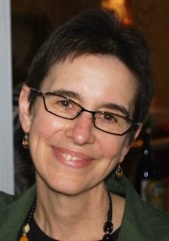
Suzanne Bianchi, a sociology professor who published several landmark studies on working mothers’ relationships with their children, died on Nov. 4 from pancreatic cancer at her Santa Monica home. She was 61.
Bianchi’s friends and family knew the scholar of family sociology as a devoted mother who always found time for her children despite the demands of her career.
Bianchi’s interest in sociology and the lives of working women was initially sparked by a tour she took of the meat-packing plant in her hometown of Fort Dodge, Iowa, when she was 12 years old, said Jennifer Browning, Bianchi’s daughter.
Bianchi noticed that the women who worked at the meat-packing plant held lower level jobs and did more labor-intensive work than the men who worked there.
Bianchi’s research and experiences with gender inequality made a lasting impression on her daughter.
“She was a successful working woman and my role model. My mother influenced me in the fact that I’m interested in gender issues. I absorbed it through her work,” Browning said.
Bianchi was known for her landmark work in demography, the study of populations, and family sociology, said Stefan Timmermans, chair of the UCLA Department of Sociology.
In her research on the dynamics of the American family, Bianchi pioneered the use of time diaries, or time logs recording how people spend their free time. Over the years, she published several award-winning contributions in the field of sociology, said Judith Seltzer, a UCLA sociology professor.
Bianchi joined UCLA’s faculty in 2009 after serving as the chair of the University of Maryland’s Department of Sociology for about 15 years.
Bianchi immersed herself in the sociology department and the California Center for Population Research at UCLA by tackling tough research questions and organizational tasks, said Seltzer, who is also the director of the California Center for Population Research.
One of Bianchi’s most important findings occurred in 2000, when she found that women with jobs spent the same amount of time with their children as women who were unemployed.
“Suzanne once compared mothers to sweepers on a soccer team,” Seltzer said. “She said, ‘Their job is to be ever attentive to what needs to be done to assist in covering the goal … they ensure that their children are clothed, well-nourished and safe.'”
In recent years, Bianchi and Seltzer collaborated to study the value of time and money in parent-child relationships.
Bianchi led a cross-university research team that developed survey questions for the study using data from the Panel Study of Income Dynamics, a study about income inequality in the U.S.
Bianchi’s and Seltzer’s study is still scheduled to be released early next year, Seltzer said.
“Suzanne had a major impact in population studies (demography) and sociology … she was well respected and loved because she was so generous and graceful in her dealings with everyone,” Seltzer said.
Bianchi’s son, James Browning, said he will remember his mother for being a humble woman and a caring mother. Browning said he has fond childhood memories of his mother making his Halloween costumes.
“She showed me you could still have a successful career while prioritizing family life,” James Browning said.
Outside of her work, Bianchi was an avid sports fan and an athlete during her youth, Jennifer Browning said. She would often attend basketball games at the University of Maryland and enjoyed running marathons later in life.
Funeral services for Bianchi were held on Nov. 16 in her hometown of Fort Dodge, Iowa, and a memorial service will follow in Washington, D.C., on Dec. 7.
Bianchi is survived by her husband, Mark Browning, their three children and her mother Rita Bianchi.